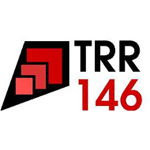
Seminar über Theorie der kondensierten Materie / TRR146 Seminar
Oct. 26, 2023 at
2:30 p.m.
in
Minkowski Room, 05-119, Staudingerweg 7
and via
livestream
F. Schmid
friederike.schmid@uni-mainz.de
P. Virnau
virnau@uni-mainz.de
L. Stelzl
lstelzl@uni-mainz.de
Note: PW: 008795
Dynamic coarse-graining of non-linear systems
Bernd Jung & Gerhard Jung (Independent Scholar, Eltville, Germany & Laboratoire Charles Coulomb (L2C), Université de Montpellier, CNRS, 34095 Montpellier, France)
We are generally interested in numerically studying the properties of soft matter. Due to limited computational resources, such studies often have to rely on coarse graining. This is the process of removing microscopic degrees of freedom to find models that are computationally much more efficient but still allow for realistic simulations of static and dynamic characteristics.
While structural properties in coarse-grained models can be described and reconstructed by effective potentials, the description of dynamics is even more complex. It requires the introduction of additional dissipative and thermal forces to compensate for the systematic removal of degrees of freedom.
One of the open questions in this field is how non-linearities in the underlying system influence form and dynamics of the coarse-grained model. Therefore, we investigated a system in thermal equilibrium using analytical theory, linear and non-linear projection operator formalisms, and computer simulations for a detailed analysis of the impact of such non-linearities. Our study highlights some open challenges and possible solutions in dynamic coarse graining.
B. Jung, G. Jung, "Dynamic coarse-graining of linear and non-linear systems: Mori–Zwanzig formalism and beyond", J. Chem. Phys. 159, 084110 (2023), https://doi.org/10.1063/5.0165541